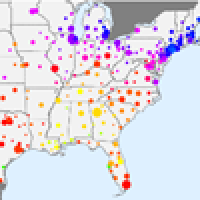
Diseases, maths and illegal numbers
If you're not sure how maths is relevant to real life, then go to see this year's popular lectures put on by the London Mathematical Society. Kevin Buzzard of Imperial College will explore the digitisation of our lives — the fact that many of the things we enjoy and work with are now stored on computers which reduce them to numbers. This has weird consequences. For example, some numbers are copyrighted, and there are even some illegal prime numbers. But way before this digital revolution, mathematicians realised that numbers could encode all of mathematics (even the parts of it that aren't about numbers), and this has some even stranger consequences.

How do diseases spread?
Julia Gog, of the University of Cambridge, will look at how mathematics has been applied to help understand and control infectious diseases, from the scale of a single virus particle through to a global influenza pandemic, and some mathematical challenges for the future.
The lectures will take place on Wednesday 9th July at the Institute of Education in London (7:00pm) and again on Wednesday 24th September at the Haworth Lecture Theatre, University of Birmingham (6:30pm). They are free, but if you wish to attend, please write to popular.lectures@lms.ac.uk. A form for registration is available on the LMS website.
And if you would like to go prepared, why not read Julia Gog's Plus article as well as our other articles on the maths of diseases, and find out why encoding maths in numbers leads to surprises.